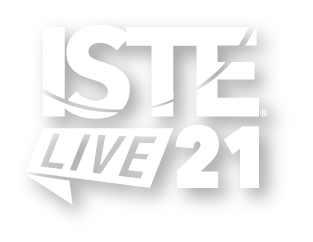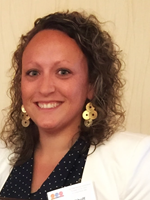

Positive Technological Development in Hybrid Learning Settings: Approaches for Early Childhood |
Participate and share : Poster
Angie Kalthoff Dr. Amanda Strawhacker
Rooted in the Positive Technological Development framework, we share ways that families and educators can use technology to engage young children in hybrid, digital and physically confined learning settings. Playground-style digital environments can foster self-directed play and exploration, and help children bring a playground mentality to learning.
| Audience: | Coaches, Curriculum/district specialists, Teachers |
| Skill level: | Beginner |
| Attendee devices: | Devices useful |
| Attendee device specification: | Laptop: Chromebook, Mac, PC Tablet: Android, iOS |
| Participant accounts, software and other materials: | ScratchJr app (www.scratchjr.org) |
| Topic: | Innovation in early childhood/elementary |
| Grade level: | PK-2 |
| Subject area: | Computer science, STEM/STEAM |
| ISTE Standards: | For Educators: Leader
Digital Age Learning Environments
|
| Disclosure: | The submitter of this session has been supported by a company whose product is being included in the session |
Participants will learn about the Positive Technology Development framework, developed through years of research at the DevTech Research Group at Tufts, and hear examples of how PTD can support children's positive social, cognitive, and civic development. Participants will be able to plan their own technology-rich activities aligned with the PTD framework, and ask questions about how PTD might fit their unique needs. Participants will understand how to access more free PTD resources for developing technology-rich activities and learning settings.
TEDx Talks:
https://www.youtube.com/watch?v=jOQ-9S3lOnM
Books:
Bers, M.U. (2018). Coding as a Playground: Programming and Computational Thinking in the Early Childhood Classroom. New York, NY: Routledge Press.
Bers, M. U. (2012). Designing Digital Experiences for Positive Youth Development: From Playpen to Playground. Cary, NC: Oxford.
Book Chapters:
Bers, M., Lynch, A. D., & Chau, C. (2009). Positive technological development: The multifaceted nature of youth technology use towards improving self and society. In Ching, C.C. & Foley, B. J. (Eds.) Technology, Learning, and Identity: Research on the Development and Exploration of Selves in a Digital World. Cambridge University Press.
Research Articles:
Bers, M. U., González-González, C., & Armas–Torres, M. B. (2019). Coding as a playground: Promoting positive learning experiences in childhood classrooms. Computers & Education, 138, 130-145.
Strawhacker, A. and Bers, M. U. (2018). Promoting Positive Technological Development in a Kindergarten Makerspace: A Qualitative Case Study. European Journal of STEM Education, 3(3) 09. doi:10.20897/ejsteme/3869
Bers, M. U., Strawhacker, A. L., & Vizner, M. (2018). The design of early childhood makerspaces to support Positive Technological Development: Two case studies. Library Hi Tech. doi: 10.1108/LHT-06-2017-0112.
Portelance, D.J., & Bers, M.U. (2015). Code and Tell: Assessing young children’s learning of computational thinking using peer video interviews with ScratchJr: Proceedings of the 14th International Conference on Interaction Design and Children (IDC ’15). Medford, MA, June 21-25. New York, NY: ACM.
Bers, M.U. (2010). Beyond computer literacy: Supporting youth’s positive development through technology. New Directions for Youth Development, 128, 13-23.
Bers, M. (2007). Positive Technological Development: Working with computers, children, and the Internet. MassPsych, 51(1), 5-7, 18-19.
Bers, M. (2006). The role of new technologies to foster positive youth development. Applied Developmental Science, 10(4), 200-219.

